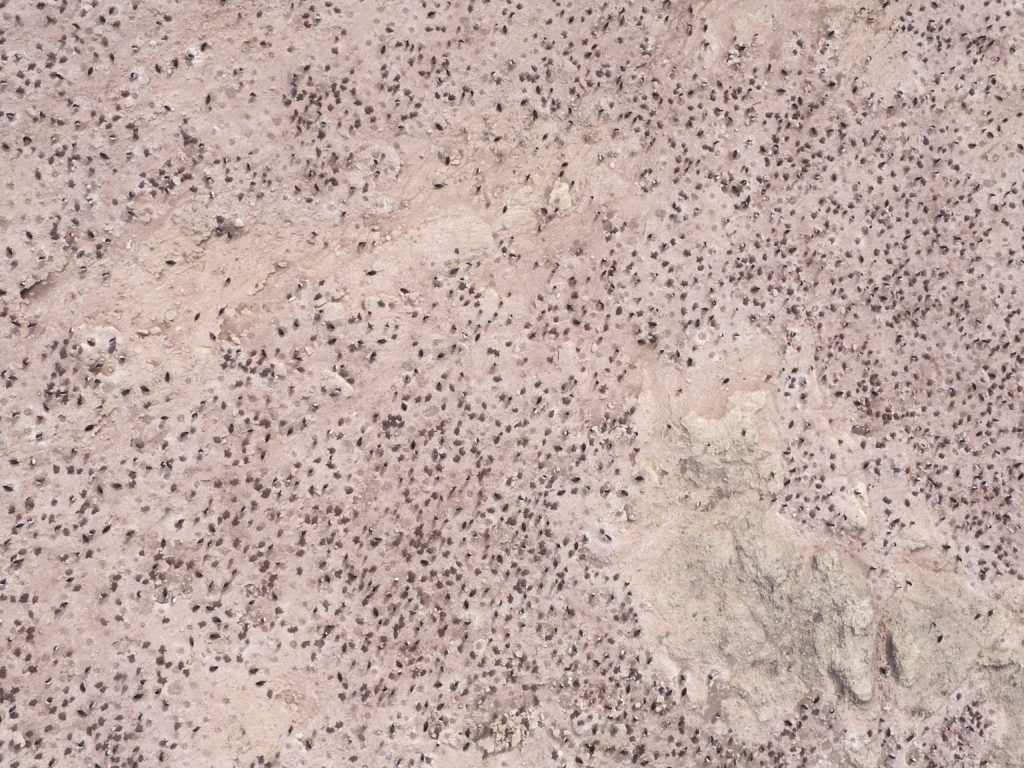UgCS Drone Fleet Software Helps Scientists Count Penguin Chicks

A close up image of chicks from the ground taken just a few days before the survey (c) Annie Schmidt/Point Blue
What one drone can do, multiple drones can do faster. Scientists have been able to use multiple UAVs, managed by UgCS drone fleet software from SPH Engineering, to survey one of the largest Adélie penguin colonies in the world in under 3 hours.
UgCS drone fleet software has been used for everything from drone light shows to geospatial data applications. Scientists from Stanford University, Point Blue Conservation Science and Conservation Metrics were able to use the UgCS software to develop a system to autonomously survey a huge colony of Adélie penguins in the Antarctic. Using multiple drones, the project which would have taken 3 days was completed in a fraction of the time. “Thousands of high-resolution images were taken on each survey,” says the press release. These images will be used with an AI model (Conservation Metrics) currently under development to automatically identify and count adult penguins and their chicks.
‘Using UgCS with a custom route planning algorithm (Stanford) our team efficiently photographed over 300,000 breeding pairs of penguins at Cape Crozier, Antarctica. Ultimately these surveys will contribute to large scale assessments of penguin populations and breeding success, key metrics for monitoring the health of the Antarctic marine ecosystem’, Annie Schmidt, a researcher at Point Blue Conservation Science, explains.

Drone image taken during a survey to count chicks (the gray, fluffy penguins) in mid- January, 2021 (© Point Blue)
The first image shows the raw image from the drone and the second is zoomed in on the same image to show the view when training the counting model.
From the press release:
The research was funded by the National Science Foundation and carried out under Antarctic Conservation Act Permit #ACA 2020-005. A multi-drone imaging system was put to the test in Antarctica in 2020.
SPH Engineering supports penguin studies as a part of its global UgCS Educational program. In 2020 UgCS was used by over 250 universities globally in environmental, archeological, geophysical, engineering, agricultural, biological and many more areas of application.
Miriam McNabb is the Editor-in-Chief of DRONELIFE and CEO of JobForDrones, a professional drone services marketplace, and a fascinated observer of the emerging drone industry and the regulatory environment for drones. Miriam has penned over 3,000 articles focused on the commercial drone space and is an international speaker and recognized figure in the industry. Miriam has a degree from the University of Chicago and over 20 years of experience in high tech sales and marketing for new technologies.


